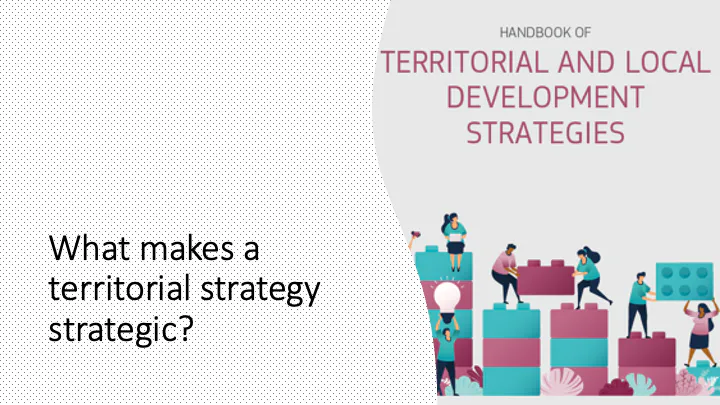Territorial Strategies
November 2022

In November 2022, the Joint Research Centre of the European Commission published a handbook on territorial and local development strategies (Öffnet in neuem Fenster). The focus is on integrated and sustainable territorial development in the context of EU cohesion policy. This concerns e.g. strategies which are implemented through territorial tools such as Integrated Territorial Investments (ITI) or Community Led Local Development (CLLD).
Most parts of the handbook are also relevant for other types of territorial strategies. In particular the first two chapters are of a broader interest as they discuss what a makes a strategy strategic and how to define the territorial focus.
As for the strategic dimension, the handbook stresses among others the need for strategic capacities, policy innovation and the coordination of strategies. As for the territorial focus, the handbook emphasises the role of a functional area approach. A few reflections following the reading of the hand book:
What makes a strategy strategic?
The main characteristics of a strategic dimension are rather context dependent. However, in essence a strategy is considered strategic when it has a transformative character opening-up new pathways and is of societal relevance. This includes breaking or rather bridging silos of individual sectors, players and governance levels, and doing so with a clear future perspective allowing for adjusting to changing circumstances and learning. This sets the bar for a ‘strategic’ strategy rather high and requires that the stakeholder have ‘strategic capacities’, as it is called in the handbook.
To read this post you'll need to become a member. Members help us fund our work to ensure we can stick around long-term.
See our plans (Öffnet in neuem Fenster)
Bereits Mitglied? Anmelden (Öffnet in neuem Fenster)


